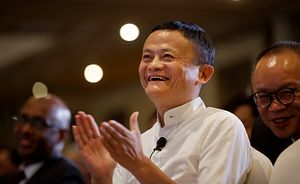In an interview with Reuters on January 17, U.S. President Donald Trump made it clear that he is going to take retaliatory trade action against China soon.
“We have a very big intellectual property potential fine going, which is going to come out soon,” Trump said, “We’re talking about big damages. We’re talking about numbers that you haven’t even thought about.”
As The Diplomat reported earlier, in August last year, U.S. Trade Representative (USTR) Robert Lighthizer officially initiated an investigation of China’s intellectual property practices under Section 301 of the Trade Act of 1974. The investigation particularly focused on China’s policies on technology transfer, intellectual property, and innovation; if USTR finds such practices are unreasonable or discriminatory and burden or restrict U.S. commerce, it has the authority to take all appropriate and feasible action, under Section 301.
It’s worth noting that just days before Trump’s exclusive interview with Reuters, the USTR put China’s e-commerce giant Alibaba Group’s Taobao, among others, on the 2017 Notorious Markets List for “engaging in and facilitating substantial copyright piracy and trademark counterfeiting. ”
“Marketplaces worldwide that contribute to illicit trade cause severe harm to the American economy, innovation, and workers,” said Lighthizer. “The Trump administration is committed to holding intellectual property right violators accountable and intensifying efforts to combat counterfeiting and piracy.”
Regarding Taobao’s problem specifically, the USTR’s report reads:
A high volume of infringing products reportedly continue to be offered for sale and sold on Taobao.com and stakeholders continue to report challenges and burdens associated with IP enforcement on the platform. In particular, SMEs continue to have problems accessing and utilizing takedown procedures on Taobao.com.
In response to the USTR’s report, Alibaba Group President Michael Evans claimed on January 12 that the accusation was made upon political bias. He said:
[I]t’s clear that no matter how much action we take and progress we make, the USTR is not actually interested in seeing tangible results. Therefore, our inclusion on its list is not an accurate representation of Alibaba’s results in protecting brands and IP, and we have no other choice but to conclude that this is a deeply flawed, biased and politicized process.
Biased or not, this report would conveniently provide Trump more legitimacy to punish China’s companies with “very big fine.” Taobao, in particular, can be a good start for penalty if the Trump’s administration wants to punish some individual as an example to others.
As The Diplomat noted earlier, Jack Ma (or Ma Yun), the founder of Alibaba Group and one of China’s richest men, has been widely seen as the leader of Chinese business community.
In July last year, Ma, together with Stephen Schwarzman, the CEO of Blackstone Group, co-chaired the first U.S.-China Business Leaders Summit held in Washington, D.C. Twenty business tycoons from both China and the United States came for the one-day closed-door dialogue. Even U.S. Commerce Secretary Wilbur Ross attended the meeting.
If Trump starts a retaliatory trade war by hitting Alibaba, he will undoubtedly achieve a stunning impact among the whole Chinese business community.

































